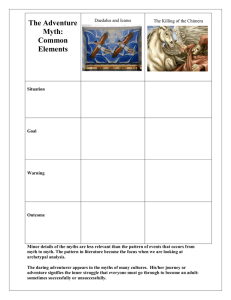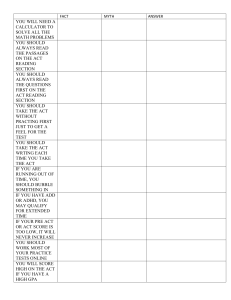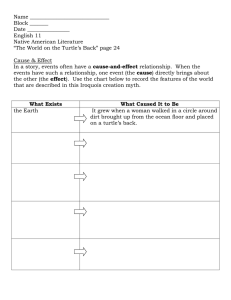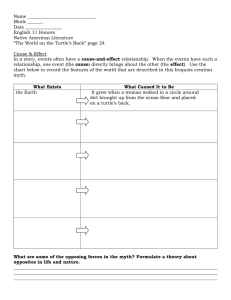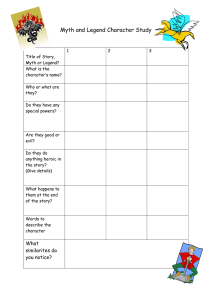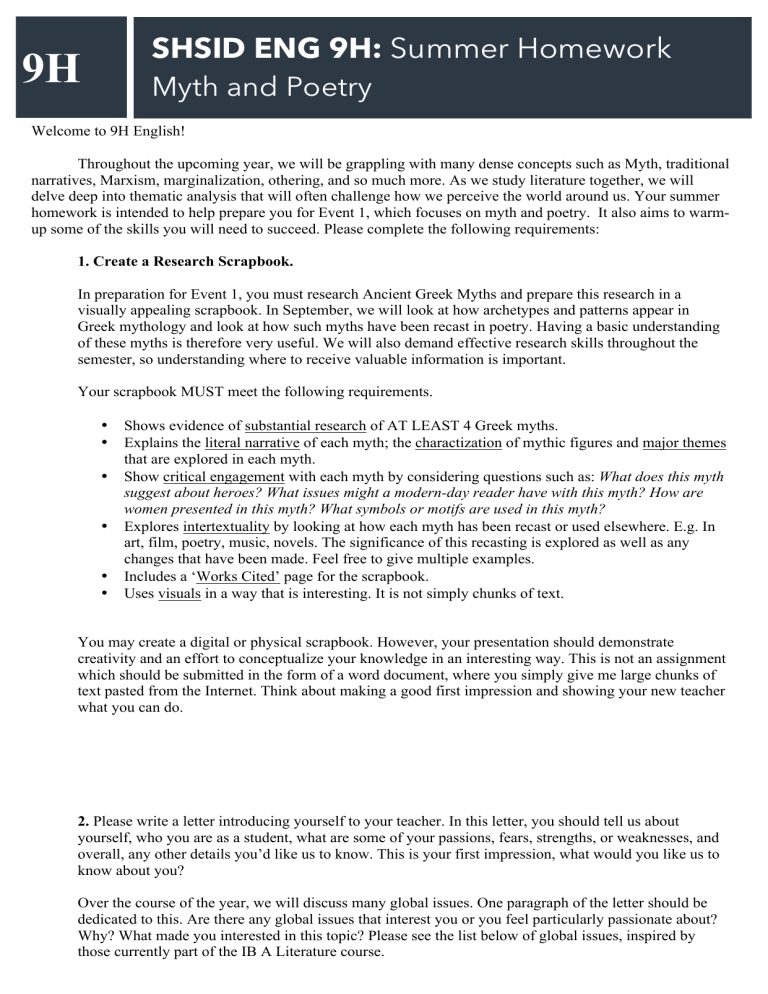
SHSID ENG 9H: Summer Homework 9H Myth and Poetry Welcome to 9H English! Throughout the upcoming year, we will be grappling with many dense concepts such as Myth, traditional narratives, Marxism, marginalization, othering, and so much more. As we study literature together, we will delve deep into thematic analysis that will often challenge how we perceive the world around us. Your summer homework is intended to help prepare you for Event 1, which focuses on myth and poetry. It also aims to warmup some of the skills you will need to succeed. Please complete the following requirements: 1. Create a Research Scrapbook. In preparation for Event 1, you must research Ancient Greek Myths and prepare this research in a visually appealing scrapbook. In September, we will look at how archetypes and patterns appear in Greek mythology and look at how such myths have been recast in poetry. Having a basic understanding of these myths is therefore very useful. We will also demand effective research skills throughout the semester, so understanding where to receive valuable information is important. Your scrapbook MUST meet the following requirements. • • • • • • Shows evidence of substantial research of AT LEAST 4 Greek myths. Explains the literal narrative of each myth; the charactization of mythic figures and major themes that are explored in each myth. Show critical engagement with each myth by considering questions such as: What does this myth suggest about heroes? What issues might a modern-day reader have with this myth? How are women presented in this myth? What symbols or motifs are used in this myth? Explores intertextuality by looking at how each myth has been recast or used elsewhere. E.g. In art, film, poetry, music, novels. The significance of this recasting is explored as well as any changes that have been made. Feel free to give multiple examples. Includes a ‘Works Cited’ page for the scrapbook. Uses visuals in a way that is interesting. It is not simply chunks of text. You may create a digital or physical scrapbook. However, your presentation should demonstrate creativity and an effort to conceptualize your knowledge in an interesting way. This is not an assignment which should be submitted in the form of a word document, where you simply give me large chunks of text pasted from the Internet. Think about making a good first impression and showing your new teacher what you can do. 2. Please write a letter introducing yourself to your teacher. In this letter, you should tell us about yourself, who you are as a student, what are some of your passions, fears, strengths, or weaknesses, and overall, any other details you’d like us to know. This is your first impression, what would you like us to know about you? Over the course of the year, we will discuss many global issues. One paragraph of the letter should be dedicated to this. Are there any global issues that interest you or you feel particularly passionate about? Why? What made you interested in this topic? Please see the list below of global issues, inspired by those currently part of the IB A Literature course. • • • • Beliefs, values and education. Politics, power and justice. Art, creativity and imagination. Science, technology and the environment. NOTE: Many 9H students forget about the accuracy of their work and focus solely on showing off their ideas. Remember to do both. Please also remember to paragraph your work appropriately. 3. We also understand that some students want to further challenge themselves over the summer break, so we have provided a Recommended Further Reading section below. Now, not all of these texts may be directly read or discussed in class, but the overall themes, ideas, and arguments may assist your understanding of Myth and poetry in the upcoming year. Recommended Further Reading: Longer texts on Myth: -The Iliad by Homer -The Odyssey by Homer -Metamorphoses by Ovid -“Roland Barthes: Myths We Don’t Outgrow” by Marco Roth (The New Yorker) -“Myth Today” by Roland Barthes (chapter from Mythologies) Shorter texts and poems about Myths1: -“Myth” by Muriel Rukeyser -“Medusa” by Louise Bogan -“Penelope” by Dorothy Parker -“Perseus” by Robert Hayden -“Prometheus” by Marin Sorescu -“Leda” by D. H. Lawrence -“Leda” by Hilda Doolittle -“Leda and the Swan” by William Butler Yeats -“Orpheus” by William Shakespeare -“The Unknown Citizen” by W. H. Auden Once you have completed your scrapbook and your letter, please print them out and hand them in to your teacher on the first day of class. These assignments will help us understand where you are in terms of your writing and analysis skills. We are excited to have you aboard and look forward to meeting you all and exploring the many dense concepts and challenges 9H has in store for us!

